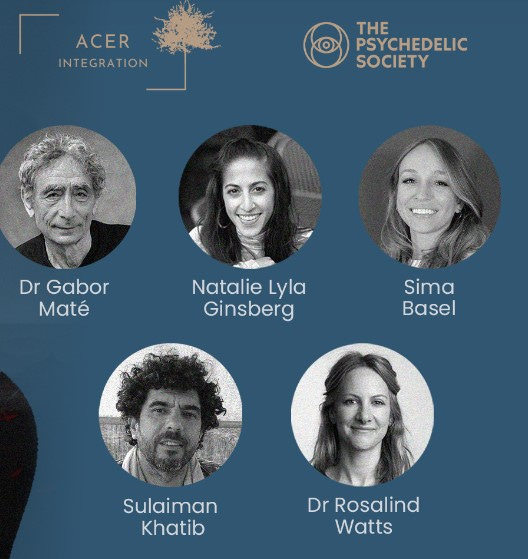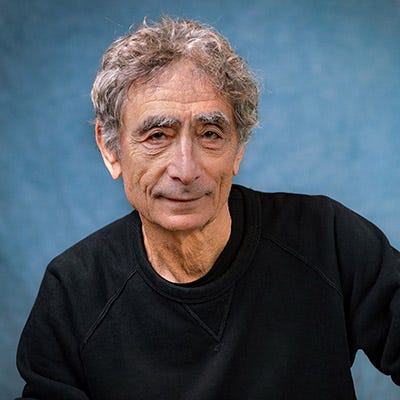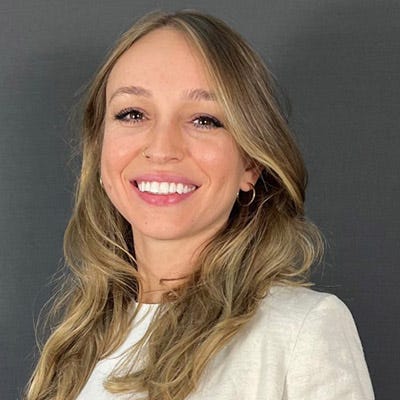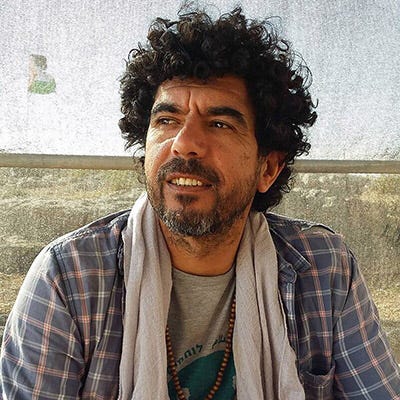Love and Grief, with Ros Watts and Gabor Maté
Join our Valentine's Day fundraiser for Médecins sans Frontières.
Resonant World now has more than 980 subscribers in countries from the United States and Australia, to the UK, South Africa and Colombia. Of these, 26 are paying supporters. This newsletter serves the global movement working to heal individual, inter-generational and collective trauma — and any support readers can provide, by sharing, commenting, or subscribing, helps reach more people. Thank you!
Resonant World#66
Back in the days when I worked as a correspondent in east Africa, the name Médecins Sans Frontières, often abbreviated to MSF, carried a quasi-mythical caché.
Born of fearless work in the midst of war, disease and disaster, and burnished by the organisation’s receipt of a Nobel Peace Prize in 1999, MSF enjoyed a reputation for helping those beyond help, in places nobody else dared go.
One time, I arrived in a convoy of reporters at an MSF field hospital on the Chad-Sudan border, where harried medics were treating civilians suffering blast and shrapnel wounds inflicted by bombs dropped by the Sudanese military. We could hear the crump of the blasts a few miles away, in Darfur, and see the planes circling.
As I recall, at least some of us — myself included — barged in to the white tents and began taking pictures and interviewing patients before due formalities with the MSF staff had been completed. This lapse was partly due to confusion among the reporters as to who might be liaising with the staff, and partly just poor practice, and we rightly received a dressing down.
Nevertheless, our intrusion was forgiven — and I remember being very grateful to warm myself around a fire in the MSF compound that evening, having narrowly avoided being blown up by one of those bombs myself, after some of us had foolishly ventured across the wadi marking the border, to interview rebels in Darfur. (When a bomber crew spotted us, and their plane spiralled closer, the rebels ordered us to freeze, to make us harder to see — a deadly game of musical statues. I still remember feeling like I was an insect — about to be crushed by a giant boot. Fortunately, the blast that detonated moments later was cushioned by a mud wall. It remains one of the few moments in my life when I experienced genuine terror).
A Valentine’s Day Gathering
I was therefore delighted when Dr Rosalind Watts, a friend of Resonant World, invited me to join the roster of facilitators at an event her Acer Integration community is staging in combination with the UK Psychedelic Society to raise funds for MSF, with phenomenal speakers: Canadian physician Dr Gabor Maté; Natalie Lyla Ginsberg; Sima Basel; and Sulaiman Khatib.
We will also be offering small-group breakouts where participants will be invited to share about their love, their grief and their longing.
Although the event provides a space to acknowledge the effects of war, including the unfolding horror in Israel-Palestine, the invitation is to share on any topic that’s close to our hearts — no matter how seemingly trivial, relative to this time of global upheaval.
Opening these kinds of spaces for deeper connection is very much aligned with the principles of the collective healing work I’ve been studying in the two-year Timeless Wisdom Training run by Thomas Hübl and his team, which I completed in December. I’m grateful to have a chance to put some of what I’ve been learning into practice.
I very much hope to see you there. You can reserve a spot here.
And you can find the full speaker bios here. The following are abbreviated versions.
Speaker Bios
Dr Gabor Maté
Gabor Maté M.D., C.M., is a Canadian physician (retired), public speaker and bestselling author of five books, published internationally in 35 languages on five continents. His book on addiction, the award-winning In the Realm of Hungry Ghosts: Close Encounters with Addiction, is used as a text in many institutions of higher learning in Canada and the U.S. His most recent book, The Myth of Normal: Trauma, Illness and Healing in a Toxic Culture, has been and continues to be a #1 Canadian bestseller and was 19 weeks a New York Times bestseller.
His next book, co-written with his son Daniel, will be Hello Again: A Fresh Start for Adult Children and Their Parents, based on their popular workshop.
Sima Basel
Sima is a Palestinian-Ukrainian clinical psychologist dedicated to helping people reconnect with themselves, and live in deeper alignment with their ecosystem. She centers her practice in integration modalities and trauma theory. As a permaculture designer, she also finds her inspiration from inter-connectedness, and the healing power of community. Sima has spent the last decade as a researcher at New York University, developing social and emotional intervention programs. She is currently training in Compassionate Inquiry, a method developed by Dr. Gabor Maté.
Sima runs regular online sharing circles for Palestinians to connect with each other and express in a safe space, and witness each other’s experience from a place of compassion and solidarity. You can sign up to join a circle here.
Natalie Lyla Ginsberg
Natalie Lyla Ginsberg received her BA in history from Yale and her Master’s of Social Work from Columbia. Before joining the Multidisciplinary Association for Psychedelic Studies (MAPS) in 2014, Natalie worked as a Policy Fellow at the Drug Policy Alliance, where she helped legalise medical cannabis in her home state of New York, and worked to end race-based marijuana arrests. Natalie has also worked as a therapist at an alternative-sentencing court for prostitution and drug-related offences, and as a middle school guidance counsellor.
At MAPS, Natalie works to disentangle science from political partisanship on Capitol Hill, at the United Nations, and beyond. She is also co-developing a psychedelic peace-building study with Imperial College, working with Palestinians and Israelis.
Sulaiman Khatib
Sulaiman Khatib is Co-Founder of Combatants for Peace, and was nominated for the 2017 and 2018 Nobel Peace Prize, on behalf of Combatants for Peace. He is a board member of ELHAM — the Day After and a local organizer who has been recognized internationally for his contributions to promoting, peace, social justice and equality for all. He is a renowned speaker and lecturer worldwide.
In 2006, Khatib was the co-founder and General Director of Al-Qud’s Association for Democracy and Dialogue. The program works with youth in order to create effective and sustainable projects and programmess focusing on the promotion of peace, democracy and civic participation in the Palestinian Territories. In 2008, he co-founded the People’s Peace Fund. In 2010, he became the director of Alquds, an organization that organized joint Israeli-Palestinian sports teams for youth.
Aged 14, Khatib was sentenced to fifteen years in prison and served a term of ten-and-a-half-years, where he spent his time learning about history, Hebrew, English and about other world conflicts and peace activists, such as Ghandi and Mandela. He acquired his entire education and worldview in jail. This is when he started to have new thoughts about the conflict and the means for resolving it. He is today a committed advocate for peace in the Middle East, and has been an active member of various programmrs aiming to promote a peaceful solution to the Palestinian-Israeli conflict for the last twenty years. During the second Intifada, he was one of the main voices calling for non-violent resistance.
Sulaiman is the author of In This Place Together: A Palestinian’s Journey to Collective Liberation, alongside co-author Penina Eilberg-Schwartz. The work chronicles the powerful experiences that led him to dedicate his life to joint nonviolence, through encountering the deep injustice of torture, witnessing the power of hunger strikes, and studying Jewish history.
Dr Rosalind Watts
As former Clinical Lead of the Psilocybin for Depression trial at Imperial College London, Dr Rosalind Watts led a clinical team which facilitated more than a hundred psilocybin treatment sessions. She developed the ACE model for psychedelic-assisted therapy ‘Accept, Connect, Embody’, which has been used in clinical trials of psilocybin and DMT, and is now launching a global online integration community, ‘Accept, Connect, Embody, Restore’ (ACER) where members will follow a 12 month process together. She has developed a psychometric tool for measuring outcomes of psychedelic therapy (the Watts Connectedness Scale); is clinical track lead on the Synthesis Institute’s Psychedelic Practitioner Training; and sits on the clinical advisory board of the Usona Institute, a not-for-profit psilocybin manufacturer and research organisation.
Resonant World is written in the gaps between my work editing investigations at nonprofit climate news service DeSmog. It’s a huge boost when people become paid subscribers, and support of any amount affirms that my mission to support the global community of practitioners engaged in integrating individual, inter-generational and collective trauma has value. Thank you!












